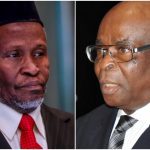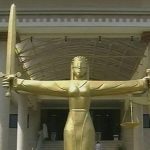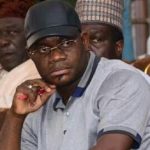A Federal High Court in Abuja has ordered the National Assembly to file its reply to the suit by senior citizens from South and the Middle Belt of Nigeria challenging alleged lopsided public appointments and loans expenditure under the President Muhammadu Buhari administration.
Justice Okon Abang directed the National Assembly has 30 days to reply having been joined as the 5th defendants by the senior citizens.
He also granted leave to the Federal Republic of Nigeria and the Attorney General of the Federation to regularise their replies having been filed out of time.
The judge further ordered that all the processes be filed and exchanged before the next adjourned date of 28th January , 2021.
In the suit filed by their counsel, Mike Ozekhome the senior citizens are demanding a reversal of the appointments and the sum of N50 billion in punitive, aggravated and exemplary damages against the President Muhammadu Buhari-led administration over the alleged violations of the constitution since the inception of the administration in 2015.
The 16 elders are: Edwin Clerk, Reuben Fasoranti, John Nnia Nwodo, Pogu Bitrus, Ayo Adebanjo, Alaowei Broderick Bozimo, Sarah Doketri, Chukwuemeka Ezeife.
Others are: Idongesit Nkanga, Kofoworola Bucknor-Akerele, Julie Umukoro, Stephen Bangoji, Tjani Babatunde, Rose Obuoforibo, Adakole Ijogi, and Charles Nwakeaku.
The defendants are the Federal Republic of Nigeria, Attorney General of the Federation, Clerk of National Assembly, and the Federal Character Commission.
The elders said it was “reckless and adverse to the interest of Nigeria” to obtain foreign loans of $22.7 billion for infrastructure development only to allocate the bulk of the fund to the Northern region with less than 1 percent of the amount to the South East Zone, which “violates section 16 (1) (a) (b) and S16 (2) (a) (b) (c) of the 1999 Constitution (as amended).”
In the matter for interpretation, the elders want the court to determine whether “in view of Section 10 particularly when read together with Section 38(1), 42(1)(a), 1(2), 16(2)(c), 14(3) and (4), and 15(2) of the 1999 Constitution (As amended), defendants are vested with the powers to pursue a deliberate policy direction of discrimination whereby preferential treatment is given to particular ethno-religious groups in the country calculated to undermine all other religions.”














